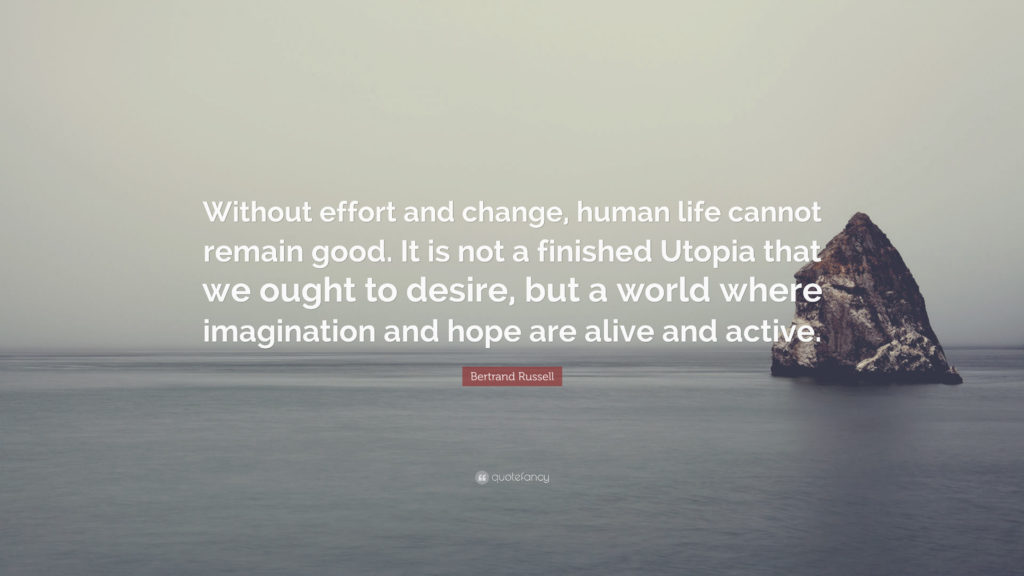
The philosopher, Espen Hammer, writing in the New York Times’ philosophy column, The Stone, argues that by shifting our focus from the ideal to the practical we lose the progressive, narrative inspiration that utopias provide.
“Utopia” — a neologism and pun coined by Thomas More in the 16th Century — can be read (due to a play on pronunciation) as both “no place” and “happy place.” The unreality of More’s utopia allowed him to propose a very different society, one which was filled with abundance and lacked private property – a point More makes sure to acknowledge as backward to avoid the wrath of Henry VIII.
Hammer argues that the ability to propose and imagine radically different ways of structuring society is what makes utopias so indispensable.
It [utopia] has animated and informed progressive thinking, providing direction and a sense of purpose to struggles for social change and emancipation. From the vantage point of the utopian imagination, history — that gushing river of seemingly contingent micro-events — has taken on meaning, becoming a steadfast movement toward the sought-for condition supposedly able to justify all previous striving and suffering.– Espen Hammer
“Anti-Utopianism”
After the horrors of the 20th century and the failure of so many utopian ideals, Hammer asserts that we have moved toward a a sort of “anti-utopianism.” These can come in two forms — one, where the managerial state makes small, incremental changes to avoid the mistakes of the past, which were motivated by overly ambitious ideals; and two, where the utopian narrative is replaced by exclusion and myth.
Anti-utopianism may…call for controlled, incremental change. The main task of government, Barack Obama ended up saying, is to avoid doing stupid stuff. However, anti-utopianism may also become atavistic and beckon us to return, regardless of any cost, to an idealized past. In such cases, the utopian narrative gets replaced by myth. And while the utopian narrative is universalistic and future-oriented, myth is particularistic and backward-looking. Myths purport to tell the story of us, our origin and of what it is that truly matters for us. Exclusion is part of their nature. — Espen Hammer
Can utopianism be salvaged and should it be? For many, the answer is no. But there are reasons to suggest, claims Hammer, that a fully modern society cannot live without a utopian consciousness. How so? Simply put: Because we need the ability to look beyond the present. But, he adds, we must do this with caution. What preoccupies our utopian imagination is of utmost importance.
Toward an Ecological Utopianism
Due, in part to consumerism, the internet, and the political failings of the 20th century, Hammer believes that utopia’s of “desire,” “technology,” and “justice” have become untenable. Instead, he argues, we should look to an ecological utopia as a way of preventing dystopia and looking toward a better future:
Are our industrial, capitalist societies able to make the requisite changes? If not, where should we be headed? This is a utopian question as good as any. It is deep and universalistic. Yet it calls for neither a break with the past nor a headfirst dive into the future…A 21st-century utopia of nature …would remind us that we belong to nature, that we are dependent on it and that further alienation from it will be at our own peril. — Espen Hammer


